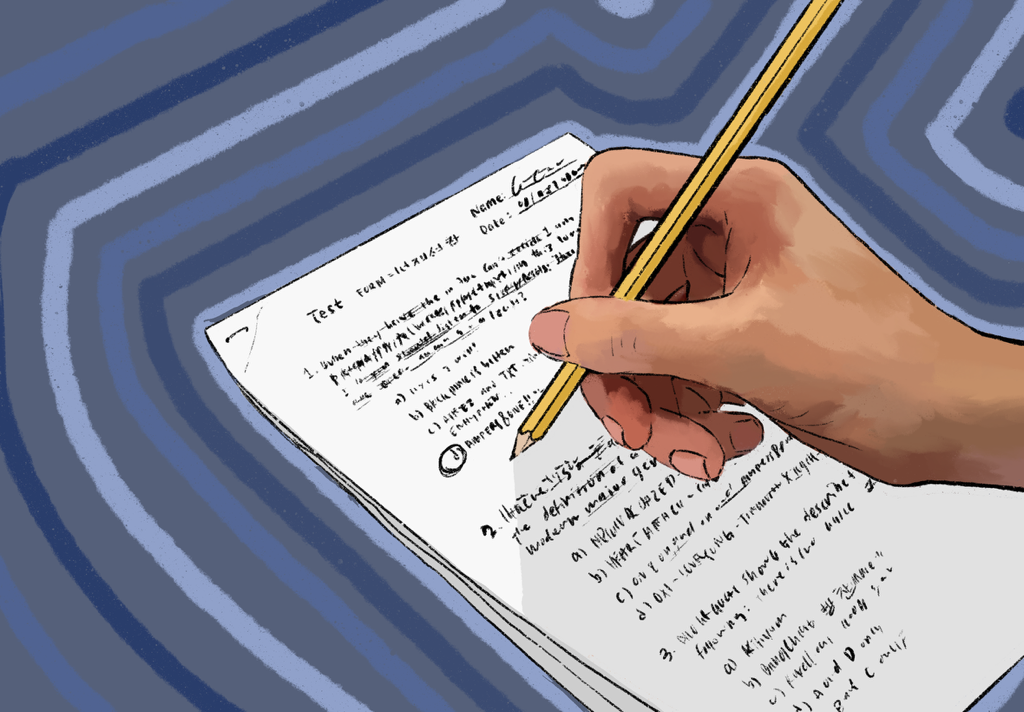After last week’s Choate talk by Henry Marshall ’16 about the suppression of conservative viewpoints on campus, I remember walking out of the PMAC and grabbing a friend. He happened to be a conservative. “Do you feel like I shut you down?” I asked.
If you’ve ever had a conversation with me, you probably know that I’m a raging liberal, and an outspoken one at that.
On any ideological spectrum test I’ve taken, I’ve scored to the left of the Green Party: I’m a socialist; I think marijuana should be legalized; I make the conscious choice to say “Black Lives Matter,” not “All Lives Matter”; I believe the justice system, like many other institutions in this nation, is racist and broken; I’m an advocate for affirmative action; I’m pro-choice; I support stringent gun control policies; and, perhaps most controversially, I believe that political correctness and freedom of speech aren’t mutually exclusive. This list of liberal stances is endless, and I’ve only become more radical as I’ve gone through Choate. But, unlike Marshall, my political beliefs are not ostracized at Choate. In many ways, I consider Choate a safe space where I have the privilege of knowing that most of my peers, and even some of my teachers, will affirm what I say on a daily basis. I’ve gotten into countless debates with people on Facebook, in the dining hall, in the classroom, or in the common room.
Although I generally leave these discussions thinking of them as rather lively debates, I’ve realized that this might not be the case for the people on the other side.
I do believe in freedom of speech, as shocking as that might sound for people whom I have disagreed with in the past, but I don’t believe that this freedom is hurt when someone disagrees or voices criticism. I’ve operated on the assumption that my criticisms show that I am engaged because I’ve taken the time to analyze the other side’s arguments and raise questions for both myself and the person I’m conversing with.
As surprising as it might be, I do take the time to reevaluate my own beliefs and I do have my moments of crisis when realize that I may be valuing the wrong things or supporting the wrong policies or people. Over time, my opinions have become more nuanced, and I hope that it is because I have been witness to arguments from across the en¬tire political spectrum.
Still, I wonder if my love for analytical debate and discourse hurts my ability to listen. I wonder if I am only reading the articles that support my beliefs rather than actively finding information that counters them. I wonder if I’m doing more to damage discussion than foster it. I wonder if I am more dismissive than I am curious.
Most opinion pieces end with some sort of conclusions. You might have expected something easily consumable, like “I am an understanding liberal,” or “I believe that the obligation to listen is not ab¬solute,” or “there’s nothing wrong with the state of dis¬course on campus.”
Unfortunately, I can’t give you a conclusion today. I’m not certain that I am an understanding liberal. I haven’t thought long enough to form a nuanced opinion on when or why we should listen. I do think the state of discourse on our campus could be better, but as a liberal, I’ve had mostly positive experiences. All I have to of¬fer you is a question – the same question I asked my friend last week: do you feel like I shut you down?
I want to say that I don’t. I want to say that I am open, curious, critical, and reflective. But this isn’t my question to answer.




